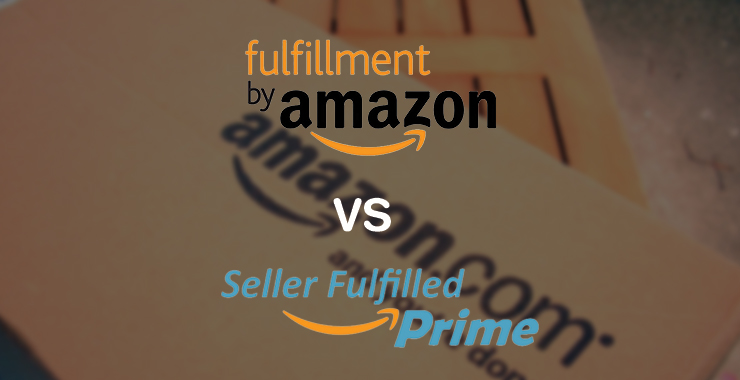Fulfillment by Amazon vs. Seller Fulfilled Prime – Pick the Right One for You
- by eSellerHub

Amazon has proved to be one of the most dominant and competitive marketplace across the globe. Retailers planning to start online business know the importance of Amazon as a sales channel to ensure success. As a seller on Amazon you have a few options when it comes to fulfilling orders – Fulfillment by Amazon (FBA), Fulfillment by Merchant (FBM) or Seller-Fulfilled Prime (SFP).
There’s no secret that Amazon Prime plays an important role in daily operations of sellers, big or small. Out of these, the two programs that allow you access to Prime are Fulfillment by Amazon and Seller Fulfilled Prime. But, Fulfillment by Amazon and Seller Fulfilled Prime are fundamentally very different and have certain features that appeal certain type of business depending on the goals, size, profits etc.
To determine which suits the best, let’s draft down the key difference between having your products Fulfilled by Amazon vs. Seller Fulfilled Prime
-
Warehousing:
The key difference between both is the way items are picked, packed and shipped.
In FBA, Amazon takes care of your inventory, stores it until the product is sold and also handles product exchange and returns. It picks-packs–ships the product of the customers, while seller can sit back, relax and enjoy the profits.
In SFP, pick-pack-ship of the product is seller’s responsibility; when customer purchase the product from Amazon, Amazon would not ship your product but rather you need to deliver product on time adhering to the shipping rules under Prime.
-
Fees:
FBA: If Amazon takes care of your inventory till the time it is stored; they would obviously charge you heavy fees in return. For non-media items, Amazon may charge you for storing, picking, packing, shipping and weight handling which adds upto around $4-5. This may lead to the zero bottom line or in the worst case you may incur losses if not strategized properly.
SFP: Here you are not sending your product to the Amazon warehouse, so you are left with only shipping cost to deal with. Hence, you can ship the product and keep the profit margin as per your convenience.
-
Stock Control:
FBA: When you send your products to the Amazon’s fulfillment centers; you can’t physically check what you already have, how much more you need and which product is of no use or damaged? Moreover, Amazon charge penalty fees for the inventory stored in fulfillment center for longer than six months.
SFP: Owning the product by yourself, you can have complete control over your stock; storing all inventories at a central location can give the power to have eye on your products at regular interval. This is boon if you are selling your product on event day, multiple sales channel or brick-and-mortar store and results in the less chances of stale inventory.
-
Saves Time
FBA: Without having to focus on time, money and energy, you can use your time and resource more efficiently to grow your business and increase productivity.
SFP: You have to spend much time and energy in picking; packing and shipping your product which is quiet tedious and you also need to be extra careful so that you don’t send wrong order to the customer.
-
Rules and Regulations
FBA: Seller does not have to follow or care for fulfillment rules and regulations when the product is lying in Amazon’s warehouse.
SFP: Amazon provides premium service to its prime customers; so when you are providing prime service without Amazon’s warehouse. You need to follow a list of Prime requirements and survive the trial period wherein you need to score high on customer satisfaction on minimum 300 orders.
The Bottom Line
From the above scenario one can get the clear picture that Fulfillment by Amazon and Seller Fulfilled Prime has their own pros and cons and completely depends on your business type, goals, size and other factors. Sellers usually opt for SPF if they are doing multi-channel retail.
Whether you fulfill your products via Seller Fulfilled Prime or do Fulfillment by Amazon, our inventory management solution can always help to drive profitable sale on Amazon. Let’s connect.